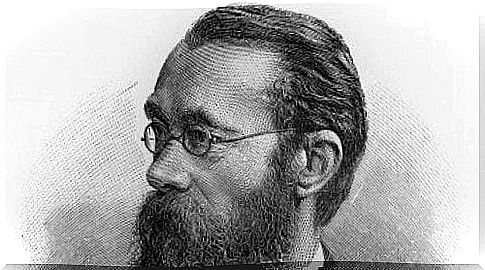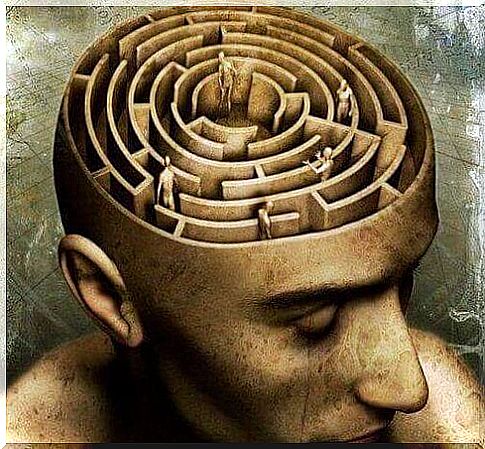10 Quotes From Wilhelm Wundt, The Father Of Psychology

Wilhelm Wundt is considered to be one of the most important and renowned psychologists of all time and is therefore sometimes referred to as the “father of psychology”. But Wundt was more than a psychologist; he was also a doctor and a philosopher. He came from a Protestant family. As a professor at the universities in Zurich and Leipzig, he supervised over 200 doctoral students. He published over 500 works. The main features of physiological psychology (1874) and the 10-volume (1900-1920) should be emphasized .
We summarize his ideas in this article and present ten quotes from Wilhelm Wundt.

Wilhelm Wundt: Fusion of psychology and physiology
At the age of 23 he received his doctorate in medicine and received a summa cum laude for his performance. Two years later, after studying with the physiologist Johannes Müller, he was awarded a second doctorate. Wilhelm Wundt was a pioneer in the transition from philosophy and physiology, which led to psychology. He explored the boundaries between the physical and the spiritual and used methods by which he could study both disciplines.
“The attitude of physiological psychology to sensations and feelings, viewed as psychological elements, is of course the attitude of psychology in general.”
Physiology provided information about what we could perceive through our senses. On the other hand, psychology served to look inside ourselves. His concept of these two disciplines was the beginning of physiological psychology.
“The task of physiological psychology remains the same in the analysis of ideas that it fulfilled in the study of sensations: to act as a mediator between the neighboring sciences of physiology and psychology.”
One object of study: consciousness
He tried to reformulate the philosophical questions that dominated psychology at the time. His aim was to refute the belief that psychology is a world of ideas, as Descartes and Locke said. Instead, it should be viewed as a hard science.
“Psychology studies the mind and the laws that govern it.”
Here Wilhelm Wundt explained where he saw the limits and the main goal of his studies. He wanted to grasp the structure of the mind and attach it to measurable parameters.
“Fortunately, our minds are equipped in such a way that they provide us with the most important bases for our thoughts, although we have no idea of this creation. Its consequences remain unconscious. “
His structuralist or introspective psychology focused on the expression of consciousness. According to Wilhelm Wundt , experimental introspection is the best way to see what is going on in our psyche.
“The distinguishing marks of the mind are of a subjective kind; we only know them from the content of our own consciousness. “

Ideas in motion
Wilhelm Wundt understood the spirit as a dynamic, creative and powerful force. He didn’t think we could ever understand him just by identifying his parts. He said:
“An idea is nothing more than a feeling, an emotion or a will. There are only changing and ephemeral ideas; there are no permanent ideas that would come and go. “
Instead, we have to try to understand it by looking at how it moves.
“We speak of virtue, honor, reason, but our thought does not translate any of these concepts into a substance.”
Ethnic or folk psychology
Wilhelm Wundt realized that a purely natural focus was not enough in psychology. Therefore, he assumed that his physiological psychology (individual, analytical and experimental) needed an addition. He found this complement in folk psychology, also known as ethnic psychology or ethnology. Popular psychology examines the products of collective life (language, customs, myths, etc.). These indicate what higher operations are taking place in our head.
“The results of folk psychology are also our most important source of information regarding the general psychology of complex mental processes.”
So William Wundt believed that experimental psychology only scratched the surface of our minds. Popular psychology, on the other hand, penetrates much deeper. He saw folk stories as a way to understand human psychology and our different cultures. He summed it up like this:
“On the other hand, folk psychology must always come to the aid of individual psychology when the development of complex mental processes is called into question.”

The forerunner of scientific psychology
Wilhelm Wundt’s greatest achievement was the establishment of the first experimental psychological laboratory, which was to be found in Leipzig from 1879. It was in this very laboratory that psychology began to establish itself as an academic discipline. It also meant increased social and institutional support for those working on psychological concepts here and elsewhere. It was a milestone in the history of psychology.
And yet Wilhelm Wundt was wrong when he assessed the importance of other branches of psychology. In the end, they are just as important as the ones he inspired. And today they are part of a science that began with him.
“Child psychology and animal psychology are of relatively little importance compared to the sciences that deal with the physiological problems of ontogeny and phylogeny.”
There are not many people who are as important to psychology as Wilhelm Wundt. The German researcher laid the foundation for scientific psychology, and he was one of the first to explore the study of mental processes in a practical, evidence-based way.









